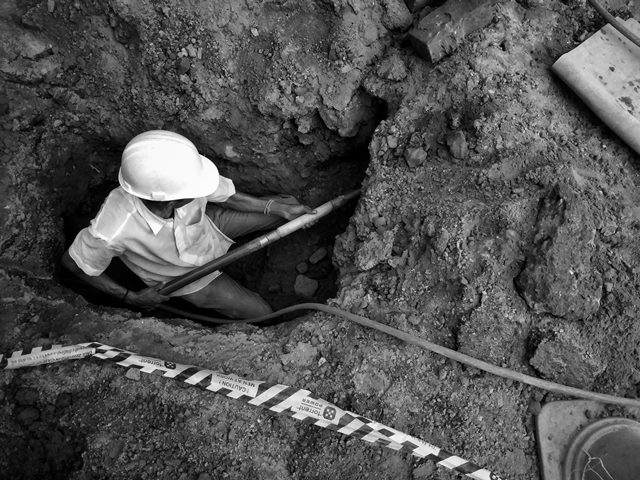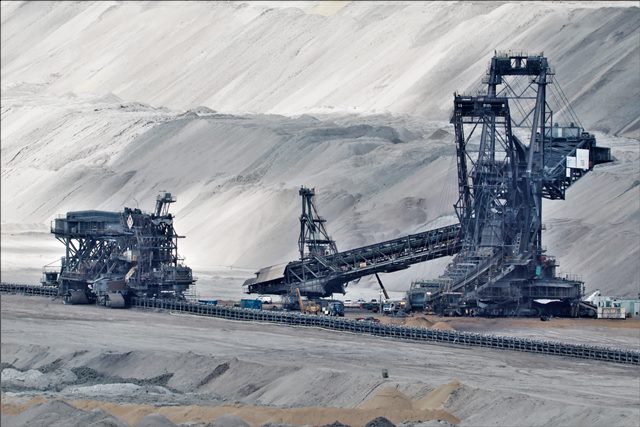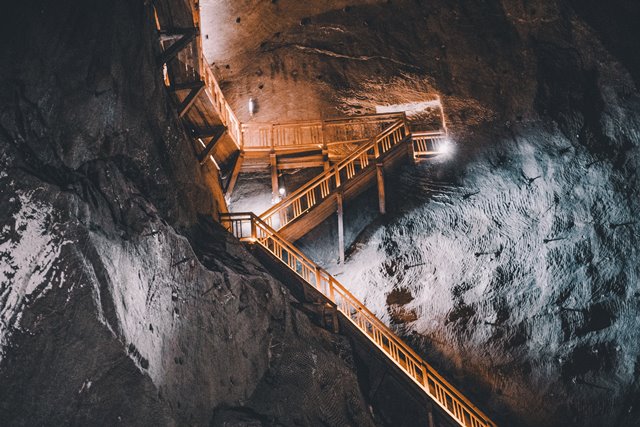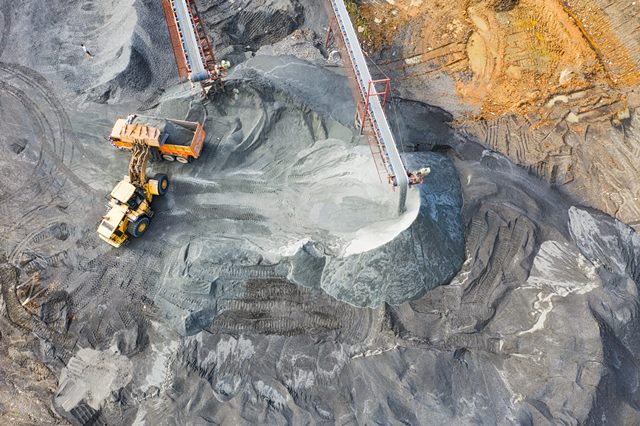African mining has been a major factor in the continent’s economic development. For centuries, the continent’s mineral wealth has attracted foreign investors and fueled growth.
However, the industry has also significantly impacted the environment, frequently leading to a precarious balance between sustainability and economic growth.
We will delve into the economic and environmental impacts of the industry in this article on mining in Africa as well as its ongoing difficulties and potential for progress.

Economic Impacts of African Mining
Africa’s economy has significantly benefited from mining over the years in terms of development and growth. The continent has abundant mineral resources, including large deposits of gold, diamonds, copper, cobalt, and other precious minerals.
The sector has fueled economic development, foreign investment, and job opportunities in numerous African nations. Nevertheless, the mining sector also faces difficulties that jeopardize its viability and long-term economic effects.
Historical Overview of Mining in Africa
Africa has a long history of mining that dates back to ancient times. West Africa had a sizable gold mining industry, with Ghana, Mali, and Songhai kingdoms controlling the trade routes and amassing enormous wealth.
However, the colonial era changed the ownership and control of African mining resources. There was frequent resource extraction for personal gain by foreign powers like the British, French, and Portuguese. And this was at the expense of local populations.
Innovative Tech Solutions, Tailored for You
Our leading tech firm crafts custom software, web & mobile apps, designed with your unique needs in mind. Elevate your business with cutting-edge solutions no one else can offer.
Start NowAfrica’s Mineral Resources
Some of the largest mineral deposits in the world, including those for gold, diamonds, copper, cobalt, and platinum, are found in Africa.
It has attracted significant foreign interest as investors seek to get their hands on some of these mineral deposits.
The African Development Bank estimates that over 40 countries have significant mineral deposits, and the continent has about 30% of the world’s mineral reserves.

Some of the mineral resources found in Africa include:
- Oil: Countries like Nigeria, Algeria, Libya, and Angola are among the major oil-producing nations in the world.
- Cobalt: The Democratic Republic of Congo is Africa’s largest producer of cobalt, with over 60% of the world’s cobalt reserves located in the country.
- Gold: Africa is one of the world’s leading gold producers, with South Africa, Ghana, and Tanzania being the major gold-producing countries.
- Copper: The Democratic Republic of Congo is the largest copper-producing country in Africa, followed by Zambia and South Africa.
- Diamonds: Africa produces over half of the world’s diamonds, with the largest diamond mines located in Botswana, South Africa, and Namibia.
- Natural gas: Algeria has Africa’s largest natural gas reserves and is one of the world’s leading gas producers.
- Uranium: Niger is the leading producer of uranium in Africa and the fourth-largest producer in the world.
- Iron ore: Africa is home to some of the largest iron ore deposits in the world, with major deposits located in South Africa, Guinea, Mauritania, and Algeria.
- Platinum: South Africa is the world’s largest producer of platinum, accounting for about 70% of global production.
These mineral resources are mined by multinational companies like Rio Tinton, Anglo American, and BHP Billiton, among others. African local communities are also involved in mining, but this is only on a small scale.
Impact of Mining on Economic Growth and Development
Mining has been a major contributor to economic growth and development in many African nations.
Governments have generated significant income from the sector, and local communities have benefited by having additional employment opportunities available.
Additionally, the sector has drawn foreign investment, which has promoted economic expansion and growth.
Foreign Investment in African Mining
Foreign investors boost the African mining sector’s productivity and efficiency by bringing money, knowledge, and technology. However, problems can arise from foreign investment, such as resource exploitation at the expense of the environment and local communities.
Therefore, strong governance and regulation are necessary to guarantee that foreign investment in the mining sector benefits local communities and the overall economy.
Seamless API Connectivity for Next-Level Integration
Unlock limitless possibilities by connecting your systems with a custom API built to perform flawlessly. Stand apart with our solutions that others simply can’t offer.
Get Started
Local Employment and Community Development
Whether directly or indirectly, the mining industry has increased employment opportunities for local communities. Mining firms frequently contribute to community development programs like infrastructure, healthcare, and education.
However, there are also instances where mining operations have had detrimental social effects, including eviction, hostilities, and human rights violations.
Therefore, mining companies need to interact with the community where they operate and make sure that their activities benefit those areas.
Environmental Impacts of African Mining

In Africa, mining has been linked to several adverse environmental effects, including habitat destruction, water pollution, air pollution, and biodiversity loss.
The sector is known for producing large amounts of waste, including toxic and hazardous materials, that can harm the environment for a very long time.
Soil erosion, water pollution, air pollution, and habitat destruction are just a few of the harmful effects that mining operations can have on the environment.
Heavy equipment, explosives, and chemical use can degrade the land and cause soil erosion, reducing its fertility and eradicating vegetation.
Water sources may become contaminated due to the extraction of minerals and ores, rendering them unfit for use in agriculture or as drinking water.
As a result of particulate matter and other air pollutants released during mining operations, people may experience respiratory issues as well as other health problems.
Read: Top Natural Resources in Africa
Case Studies of Environmental Impacts on African Mining
Regardless of any positives, mining operations hurt the African environment. For instance, in Nigeria, oil spills in the Niger Delta have caused widespread contamination of the soil and water supplies, leading to health issues and decreased agricultural productivity.
The survival of endangered species like gorillas and chimpanzees is also at risk due to habitat destruction and deforestation caused by mining activities in the Democratic Republic of the Congo.
Gold mining in South Africa has been linked to the release of radioactive and toxic substances like arsenic and lead, which can contaminate water sources and lead to health issues for the surrounding communities.
Water sources have been contaminated, and aquatic habitats have been reduced due to the nation’s acid mine drainage problem.
Transform Business with Custom CRM & ERP Solutions
Elevate your operations with a CRM or ERP tailored for you. Let’s build the perfect solution that others can't replicate—crafted to match your business's needs like no other.
Get StartedEnvironmental Regulations and Compliance
African governments have implemented regulations and guidelines to encourage sustainable mining practices to address the environmental effects of mining activities.
Yet many mining companies have failed to adhere to environmental standards, making it challenging to implement these regulations.
Some of these countries suffer from an extensive network of corruption. This means many companies continue to disobey environmental regulations and compliance requirements without consequences.
Effective governance and regulation are extremely important to guarantee that the industry operates sustainably and that the environment is protected.
Challenges Facing African Mining
Below are some of the many challenges the African mining sector faces:

Social Challenges
Community relations are one of the leading social obstacles that African miners must overcome. Mining operations frequently occur in rural areas where communities rely on natural resources like land and water for their livelihoods.
However, mining companies and local communities may clash due to the exploitation of these resources by mining companies. Additionally, mining operations may harm the health and safety of the neighborhood, resulting in unrest and protests.
Economic Challenges
The mining sector in Africa has to deal with several economic issues, such as fluctuating commodity prices, rising production costs, and inadequate infrastructure.
Commodity price fluctuations can impact mining companies’ profitability, resulting in reductions in production and employment.
Increases in production costs, such as those for labor, energy, and equipment, can also make businesses less profitable and result in job losses.
Poorly maintained roads, railroads, and ports can raise transportation costs and make African mining products less competitive in international markets.
Tailored Tech Solutions to Drive Your Business Forward
Maximize your business potential with custom tech strategies. We deliver bespoke solutions that others can’t match, designed to solve your specific challenges with precision and impact.
Contact UsEnvironmental Challenges
Significant environmental effects of mining in Africa include air pollution, water pollution, and land degradation. The industry produces a lot of waste, including toxic and hazardous materials, that can harm the environment for a very long time.
Quite frankly, African mining must strike a balance between economic growth and environmental sustainability to prevent mining operations from causing the environment irreparable harm.
Regulatory Challenges
Regulatory framework effectiveness is essential for mining activities to be carried out sustainably and responsibly. However, weak or ineffective regulatory frameworks can result in environmental deterioration and social unrest in many African nations.
The effectiveness of regulatory frameworks can also be compromised by corruption and poor governance. It might enable mining companies to operate illegally and take advantage of natural resources without regard for the local population or the environment.
Potential for Positive Change in African Mining
Despite several difficulties, there is a lot of room for improvement in the African mining sector. The mining sector can support economic growth and development while building social and environmental sustainability by promoting sustainable and responsible mining practices.

Social and Environmental Responsibility
A growing focus on social and environmental responsibility is one of the major forces influencing positive change in African mining.
Mining companies are realizing the value of promoting goodwill with regional communities, safeguarding the environment, and promoting ethical mining methods.
This involves implementing initiatives that aid neighborhood communities by facilitating access to opportunities for employment, healthcare, and education.
Mining companies are also implementing cutting-edge strategies to lessen the effects of their operations on the environment. Some of these strategies include the use of renewable energy sources, better waste management techniques, and the promotion of biodiversity preservation.
Technology and Innovation
The application of technology and innovation could also be a factor in improving mining in Africa. Technology advancements have enabled the extraction of minerals and ores more effectively. This can lower production costs and have a more negligible environmental impact.
For instance, using automation and robotics can boost productivity while lowering the need for manual labor, enhancing safety, and lessening environmental impact. Mining activities can harm the environment. But waste management innovations, such as bioremediation and other sustainable methods, can lessen that impact.
Corporate Social Responsibility
Corporate social responsibility (CSR) is another factor that could promote improvement in the mining sector in Africa.
Mining companies are becoming increasingly aware of the value of CSR, which entails accepting accountability for the social, environmental, and economic effects of one’s actions.
This includes fostering sustainable development, defending the environment, and helping local communities.
As part of their commitment to accountability and transparency, mining companies are opening up about their operations and interacting with stakeholders.
Government Regulation and Governance
Lastly, effective government regulation and governance are needed to guarantee that mining operations are conducted sustainably and responsibly.
African governments are becoming more aware of the significance of regulating the mining sector, including enacting laws and policies to encourage ethical mining practices.
This entails safeguarding the environment, safeguarding local communities, and fostering accountability and transparency. The mining industry is being effectively regulated and overseen, and governments are working to improve governance by tackling corruption.
Before you go…
Hey, thank you for reading this blog to the end. I hope it was helpful. Let me tell you a little bit about Nicholas Idoko Technologies. We help businesses and companies build an online presence by developing web, mobile, desktop, and blockchain applications.
We also help aspiring software developers and programmers learn the skills they need to have a successful career. Take your first step to becoming a programming boss by joining our Learn To Code academy today!











